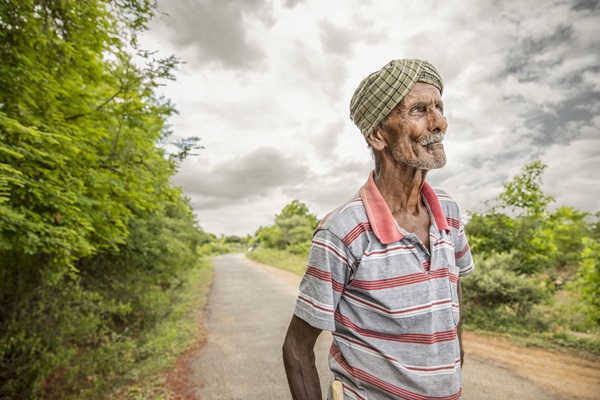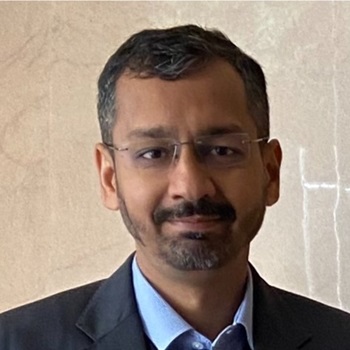.png)
When Parents Age And Middle-Aged Children Run Out of Time
Urban success has come at the cost of familial presence. As our parents age in quieter towns, we struggle to be there—not for lack of love, but for lack of time.


Dr. Srinath Sridharan is a Corporate Advisor & Independent Director on Corporate Boards. He is the author of ‘Family and Dhanda’.
May 31, 2025 at 5:31 AM IST
What do we really owe the people who raised us once they can no longer raise themselves? Is wiring money enough when we cannot offer our presence? Are we proud of the lives we’ve built if we cannot bring them into it? Can progress be called success when it leaves our elders behind, staring at the gate for a visit that keeps getting postponed?
These are not comfortable questions. But they sit heavy in the corners of our hearts—especially when the phone rings late at night or a WhatsApp message says “Amma isn’t keeping well.”
It’s a scene many of us now recognise. A close friend or cousin vanishes from work chats and dinner plans. They’ve rushed home.
Not to the house they live in now, but to the one they left behind years ago in a quieter town. Their parent is unwell. And in that moment, all that the city gave—job security, networks, reputation—feels irrelevant. Something deeper calls. Something more human. Something that doesn’t show up in our LinkedIn bios but shapes our soul.
The harder part is what happens after that rush. Most of us can’t stay back. Not because we don’t want to, but because we simply can’t. The jobs we fought so hard to get won’t wait. The school term continues. The rent needs to be paid. The city, in all its glory, is merciless with absence. So, we stay a few days. We do what we can—doctors, tests, food, arrangements—and then we leave. We leave knowing full well that the healing needed is not medical alone. It is emotional. And we can’t give it. Not in the way it’s needed.
The guilt, though, stays. It travels with us on the return flight or train journey. It lingers during Zoom meetings. It shows up uninvited during weekend brunches. We tell ourselves we’ll plan better next time. We make lists of how to be more available. But then, time passes, cities pull us back into their rhythm, and ageing parents get reduced once again to phone calls and forwarded reports.
You’d think the solution is simple. Ask them to move in. After all, what are we earning for, if not to create space for the ones who built us? But reality doesn’t bend to such logic. Most parents don’t want to move to the cities we live in. They say the same things. It’s too noisy. Too fast. They don’t know anyone. The apartment is too small. They don’t want to be a burden. And quietly, beneath these words, is an unsaid truth. They don’t feel at home in the world we’ve made for ourselves.
Cities don’t make space for the old. Not really. Hospitals are crowded. Transport is difficult. Costs are sky-high. Even something as basic as finding a nurse who speaks their language is a task. And even if all that is managed, there’s the ache of invisibility. In a city, no one knows them. No one waves from the gate. No one calls out from across the street. They become one more face in the corridor, one more patient on the bench. And for someone who was once the centre of a family, that’s a kind of death too.
A friend recently said something that hasn’t left me. He’d returned to his hometown because his mother was admitted to hospital. He arranged everything, took charge, and stayed for two weeks. The day he left, she looked at him with both pride and pain. And said, “You’ve done so much. But I miss just seeing you have tea with me in the morning.” That’s the part no one prepares us for. The part where love is not measured by action but by presence. By sitting quietly next to someone even when there’s nothing to fix.
Modernity, for all its progress, has created a generation that can afford everything except time. We can buy insurance and hire help and send gifts and arrange ambulances from our phones. But we cannot hold a hand in real time. We cannot ease the fear in their eyes when they forget something or feel dizzy or hear bad news. And somewhere along the way, we’ve normalised this gap. We’ve stopped calling it what it is—a fracture in the promise between generations.
Some of us try to find middle paths. We take work-from-anywhere breaks. We extend holidays. We convince bosses. We make arrangements. But all of this is patchwork. The truth is, there is no infrastructure today in Indian cities that supports the idea of intergenerational living with dignity. And there’s very little emotional vocabulary in our culture to admit that love needs logistics. That duty needs structure. That proximity is a form of care.
And then there’s a deeper, more uncomfortable question. Even if we did try to move back—leave our city jobs, return to the towns we once fled—do we even know how to live there anymore? The places have changed. The people we grew up with have moved on. The homes feel smaller, quieter, dustier than we remember. The rhythms we once knew—slow mornings, evening walks, unhurried chats—now feel like a mismatch against our restless minds trained for productivity and pace. We left looking for economic roots, but in doing so, we unlearned the muscle memory of being still.
We speak of “going back” like it’s a return, but what if we no longer belong? We walk those familiar streets like tourists now. Our old school looks smaller. The grocery uncle we knew has retired. The silence that once soothed us now unnerves us. The life we left behind stayed still only in our nostalgia. In reality, it moved on without us. And when we try to return, we realise we are no longer the people who once fit effortlessly into its frame. We built new selves in big cities—and those selves don’t know what to do with long afternoons and local gossip and the lack of a third coffee shop to choose from.
This is not about placing blame. It is about naming a reality we are all silently living. It is about acknowledging that we are grateful for the lives we have, but haunted by the lives we cannot give back to the ones who made ours possible.
We often say India is young. But India is also ageing. And unless we find a new way to honour that ageing—not with words, but with systems, space, and sensitivity—we will continue to live with this ache.
Sometimes, when I speak to friends who are caught in this exact moment—between two cities, between two duties, between love and lack—I wonder if this is the cost of ambition in our times. And whether, in our quietest moments, we already know the answer.
“What is the point of arriving somewhere, if in getting there, we had to leave behind the very people we were meant to bring along?”



